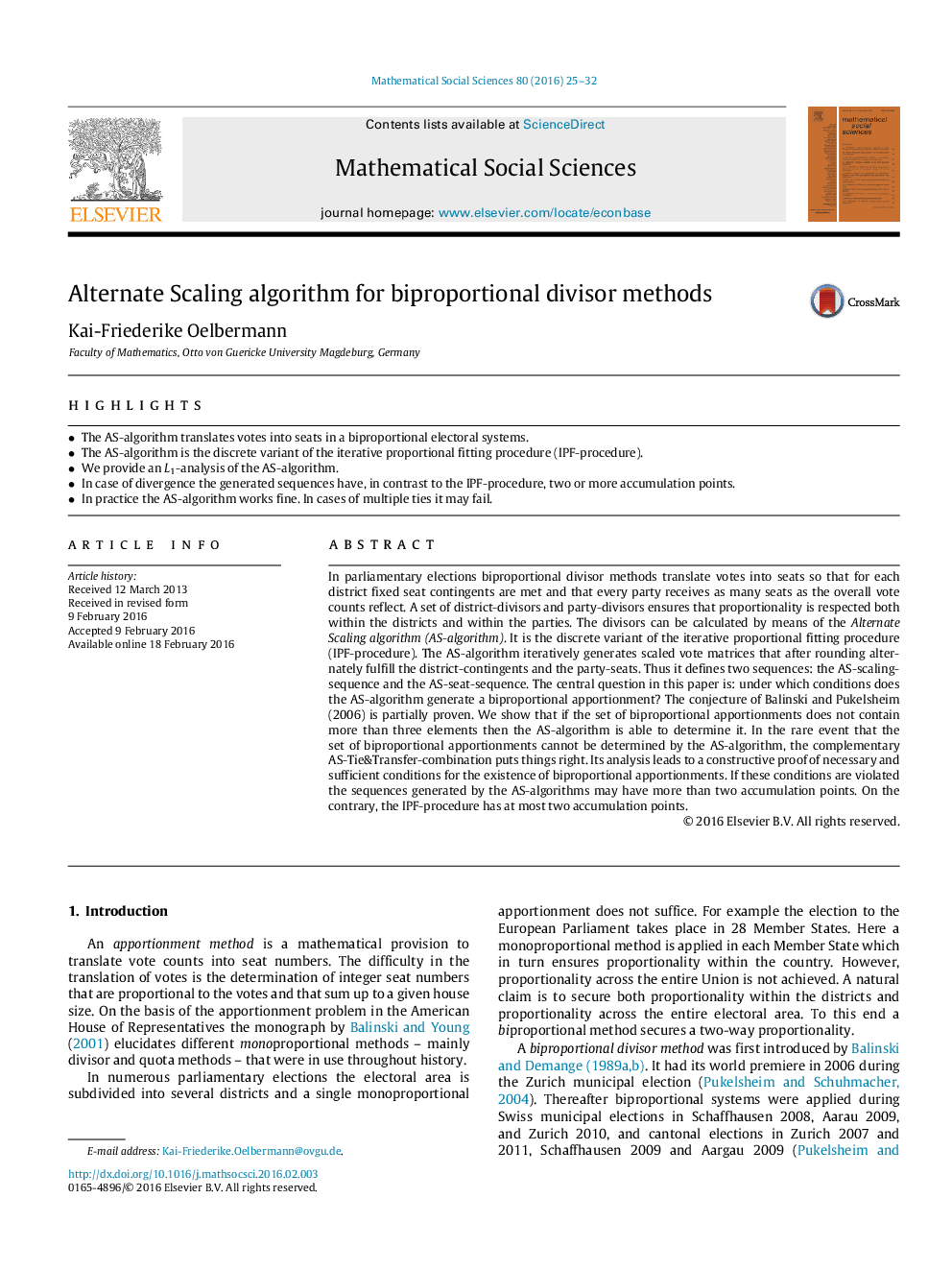| کد مقاله | کد نشریه | سال انتشار | مقاله انگلیسی | نسخه تمام متن |
|---|---|---|---|---|
| 972022 | 1479738 | 2016 | 8 صفحه PDF | دانلود رایگان |
• The AS-algorithm translates votes into seats in a biproportional electoral systems.
• The AS-algorithm is the discrete variant of the iterative proportional fitting procedure (IPF-procedure).
• We provide an L1L1-analysis of the AS-algorithm.
• In case of divergence the generated sequences have, in contrast to the IPF-procedure, two or more accumulation points.
• In practice the AS-algorithm works fine. In cases of multiple ties it may fail.
In parliamentary elections biproportional divisor methods translate votes into seats so that for each district fixed seat contingents are met and that every party receives as many seats as the overall vote counts reflect. A set of district-divisors and party-divisors ensures that proportionality is respected both within the districts and within the parties. The divisors can be calculated by means of the Alternate Scaling algorithm (AS-algorithm). It is the discrete variant of the iterative proportional fitting procedure (IPF-procedure). The AS-algorithm iteratively generates scaled vote matrices that after rounding alternately fulfill the district-contingents and the party-seats. Thus it defines two sequences: the AS-scaling-sequence and the AS-seat-sequence. The central question in this paper is: under which conditions does the AS-algorithm generate a biproportional apportionment? The conjecture of Balinski and Pukelsheim (2006) is partially proven. We show that if the set of biproportional apportionments does not contain more than three elements then the AS-algorithm is able to determine it. In the rare event that the set of biproportional apportionments cannot be determined by the AS-algorithm, the complementary AS-Tie&Transfer-combination puts things right. Its analysis leads to a constructive proof of necessary and sufficient conditions for the existence of biproportional apportionments. If these conditions are violated the sequences generated by the AS-algorithms may have more than two accumulation points. On the contrary, the IPF-procedure has at most two accumulation points.
Journal: Mathematical Social Sciences - Volume 80, March 2016, Pages 25–32
